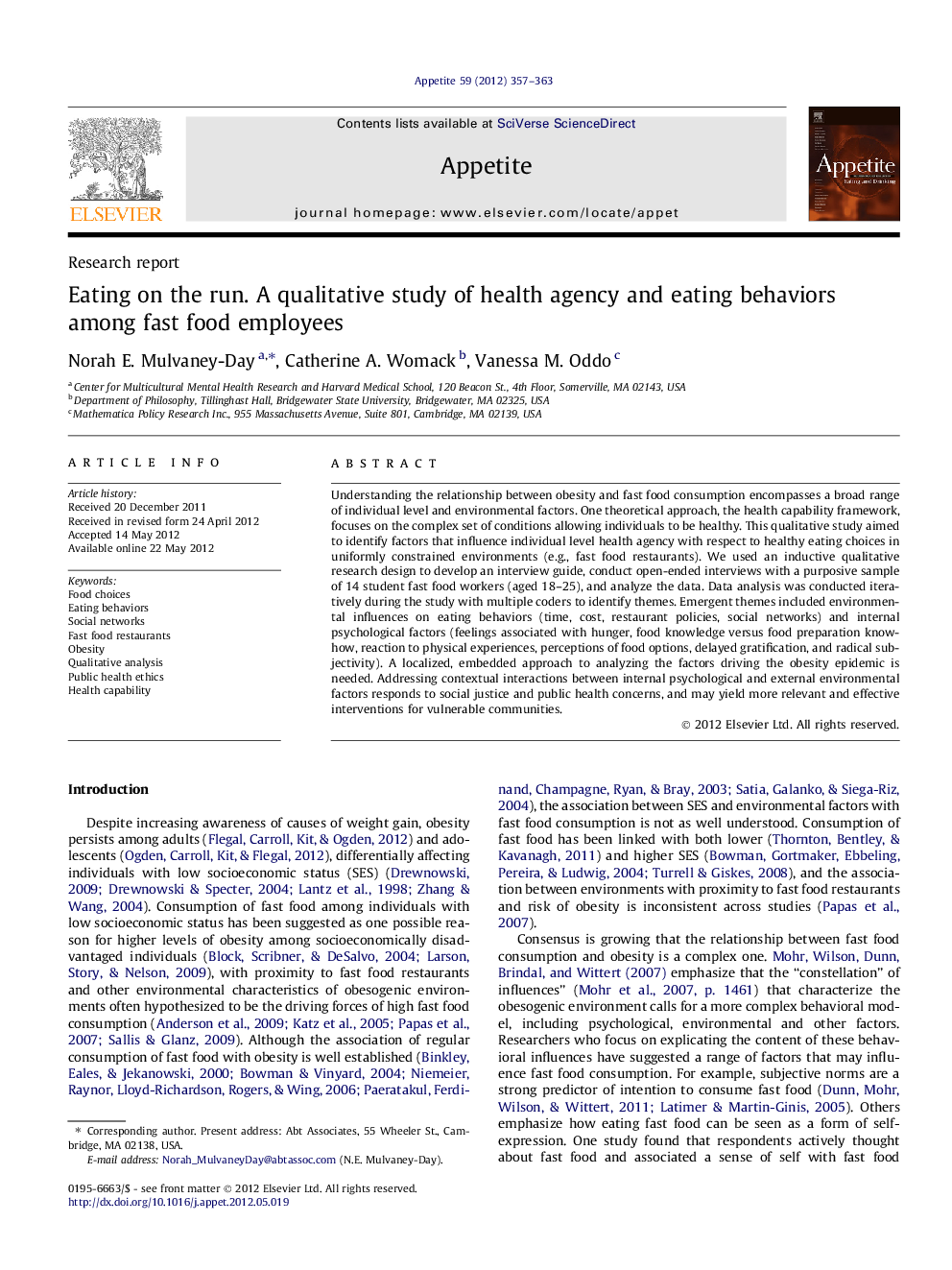| Article ID | Journal | Published Year | Pages | File Type |
|---|---|---|---|---|
| 939952 | Appetite | 2012 | 7 Pages |
Understanding the relationship between obesity and fast food consumption encompasses a broad range of individual level and environmental factors. One theoretical approach, the health capability framework, focuses on the complex set of conditions allowing individuals to be healthy. This qualitative study aimed to identify factors that influence individual level health agency with respect to healthy eating choices in uniformly constrained environments (e.g., fast food restaurants). We used an inductive qualitative research design to develop an interview guide, conduct open-ended interviews with a purposive sample of 14 student fast food workers (aged 18–25), and analyze the data. Data analysis was conducted iteratively during the study with multiple coders to identify themes. Emergent themes included environmental influences on eating behaviors (time, cost, restaurant policies, social networks) and internal psychological factors (feelings associated with hunger, food knowledge versus food preparation know-how, reaction to physical experiences, perceptions of food options, delayed gratification, and radical subjectivity). A localized, embedded approach to analyzing the factors driving the obesity epidemic is needed. Addressing contextual interactions between internal psychological and external environmental factors responds to social justice and public health concerns, and may yield more relevant and effective interventions for vulnerable communities.
• Particularity of values, constraints, and social connections affect eating choices. • Constrained eating environments limit food choice based on individual food norms. • Lack of health agency affects eating behavior and individuals’ evaluative processes. • Eating experiences depend on the embedded context of one’s lived environment.
